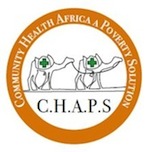Frequently Asked Questions
The clinics are regarded with the same respect afforded organizations like the Red Cross and UN. The clinics are welcomed because the communities themselves have asked for heathcare to be brought to them. These requests are made through channels that have already been working closely with the tribes in the region i.e. various wildlife foundations like the Laikpia Wildlife Forum. Most requests come via community members, Government District Officers and the Ministry of Health ask the clinics to assist with regions they cannot reach due to lack of adequate resources.
The clinics have detailed reporting tools in place and partner with the Ministry of Health to whom they report on a monthly basis. The clinics’ current funders such as, the Center for Disease Control (CDC) and Family Health International (FHI), demand extremely high quality in both service and accountability.
No there is not.
While CHAPS exercises independent discretion, funds given for a specific purpose are tracked and monitored for use in the specified application. It is our mission to improve healthcare and health education in rural Kenya. CHAPS receives and monitors the use of all funds.
